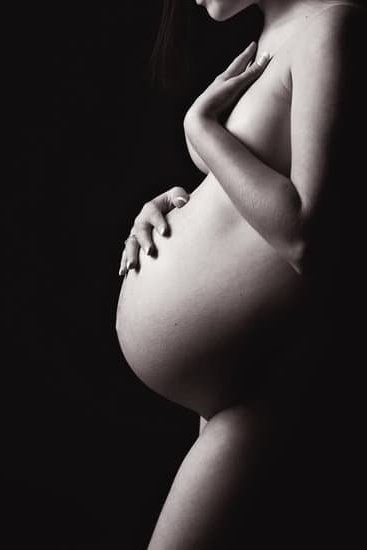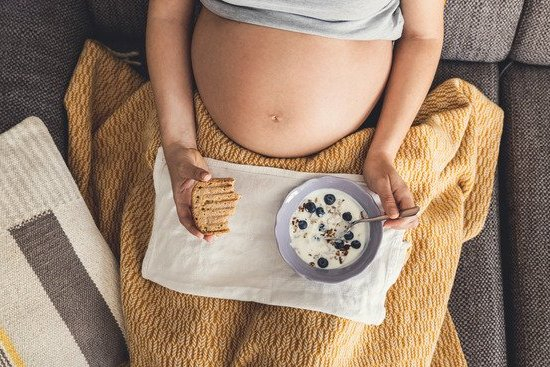Pregnancy is a time of great change for a woman’s body, and one common change that many women experience is frequent urination. Understanding when this symptom typically begins and what factors contribute to it can help expectant mothers navigate this normal part of pregnancy more easily.
This article will explore the early signs of pregnancy, hormonal changes affecting the urinary system, and provide coping strategies for managing frequent urination. If you’re wondering “when does frequent urination start in pregnancy,” read on to learn more.
As soon as a woman becomes pregnant, her body begins undergoing numerous changes in preparation for carrying and delivering a baby. These changes are driven by hormonal shifts that affect nearly every system in the body, including the urinary system. While some of these changes may be uncomfortable or inconvenient, they are usually a sign of a healthy pregnancy.
One of the earliest signs of pregnancy is increased frequency of urination, which can begin as early as six to eight weeks into the pregnancy. This increase in urination frequency is often attributed to hormonal changes and physical pressure on the bladder from the growing uterus.
As the pregnancy progresses, other factors may also come into play, contributing to even more frequent trips to the bathroom. Understanding these factors and how to cope with them can help make this aspect of pregnancy more manageable.
Early Signs of Pregnancy
Pregnancy brings about a multitude of changes in a woman’s body, and one of the earliest signs is frequent urination. This can start as early as the first few weeks after conception, with many women noticing an increased need to urinate even before they have missed their period. The hormone hCG, which is produced by the developing placenta, can lead to this symptom.
The increase in urinary frequency during pregnancy is mainly due to the growing uterus putting pressure on the bladder. As the uterus expands and becomes heavier, it can compress the bladder, reducing its capacity to hold urine. Additionally, hormonal changes can cause the kidneys to filter more blood and produce more urine than usual.
In addition to hormonal and physical changes, other reasons for frequent urination during pregnancy include increased blood volume and increased fluid retention. All these factors contribute to the common experience of needing to urinate more often in early pregnancy. It is essential for expectant mothers to be aware of these changes and manage their symptoms accordingly.
| Early Signs of Pregnancy | When Does It Start? |
|---|---|
| Hormonal changes | First few weeks after conception |
| Physical changes | Growing uterus puts pressure on bladder |
| Other factors | Increased blood volume and fluid retention |
Hormonal Changes and the Urinary System
During pregnancy, a woman’s body undergoes numerous hormonal changes that affect various systems, including the urinary system. These hormonal fluctuations can lead to increased frequency of urination, which is a common symptom experienced by many pregnant women. Understanding how these hormones impact the urinary system can help expectant mothers better manage and cope with this common pregnancy discomfort.
Impact of Hormonal Changes
The hormonal changes that occur during pregnancy, particularly an increase in the production of human chorionic gonadotropin (hCG) and progesterone, have a significant impact on the urinary system. The growing uterus puts pressure on the bladder, causing it to be more sensitive and reducing its capacity to hold urine. Additionally, the increase in blood volume and kidney function also contribute to the need for more frequent urination.
When Does Frequent Urination Start?
Frequent urination typically begins early in pregnancy, often within the first few weeks after conception. As hormone levels rise and physical changes occur in the body, women may notice an increased need to urinate more frequently than usual. This symptom may continue throughout the entire pregnancy as the baby grows and presses against the bladder.
Managing Hormonal-Related Frequent Urination
While frequent urination is a normal part of pregnancy, there are strategies that women can use to help manage this symptom. Avoiding caffeine and drinking plenty of water throughout the day can help maintain bladder health. Emptying the bladder completely when urinating and emptying it as soon as you feel the need can also be helpful. Kegel exercises to strengthen pelvic floor muscles may also provide some relief from frequent urination during pregnancy.
Understanding how hormonal changes affect the urinary system can help expectant mothers navigate through this common discomfort of frequent urination during pregnancy. By being aware of when it typically starts and utilizing coping strategies to manage it effectively, women can experience a healthier and more comfortable journey through their pregnancies.
Increased Urination Frequency
During pregnancy, many women experience an increased frequency of urination, which can be both inconvenient and uncomfortable. The question on many expectant mothers’ minds is: when does frequent urination start in pregnancy? The answer varies for each woman, but it typically begins in the first trimester.
- First Trimester: Hormonal changes, specifically the increase in progesterone levels, can contribute to the need for more frequent urination. Additionally, the growing uterus puts pressure on the bladder, causing it to fill up more quickly.
- Second Trimester: Some women find relief from frequent urination during this time as the uterus shifts position and takes some pressure off the bladder. However, others may continue to experience increased urination due to the continued growth of the baby and uterus.
- Third Trimester: As the baby continues to grow and put more pressure on the bladder, frequent urination may become even more pronounced during this stage of pregnancy. In addition to physical pressure, hormonal changes and increased circulation of fluids in the body also contribute to this symptom.
It’s important for pregnant women to understand that frequent urination is a normal part of pregnancy. However, if there are sudden or severe changes in urinary habits, it’s crucial to seek medical advice.
Factors That Contribute to Frequent Urination in Pregnancy
During pregnancy, hormonal changes and physical factors can contribute to the increased frequency of urination. These changes can begin as early as the first trimester and continue throughout the pregnancy. Understanding the contributing factors to frequent urination can help expectant mothers manage this common symptom.
Hormonal Changes
The hormonal changes that occur during pregnancy, particularly the increase in progesterone levels, can lead to an increased urge to urinate. Progesterone relaxes the muscles of the urinary tract, which can cause the bladder to fill more quickly and result in more frequent trips to the bathroom. Additionally, the growing uterus puts pressure on the bladder, further exacerbating this symptom.
Increased Blood Volume
During pregnancy, a woman’s blood volume increases significantly to support the growing fetus. This increase in blood volume leads to more fluid being processed by the kidneys, resulting in more urine production. As a result, pregnant women may find themselves needing to urinate more frequently than usual.
Position of the Baby
As the pregnancy progresses and the baby grows larger, its position within the uterus can also contribute to frequent urination. The pressure from the baby’s head on the mother’s bladder can lead to an increased urgency to urinate.
Understanding these contributing factors allows pregnant women to anticipate and prepare for frequent urination throughout their pregnancies. By being aware of why this symptom occurs, expectant mothers can better cope with this normal aspect of pregnancy and focus on maintaining a healthy and comfortable experience.
Coping Strategies for Frequent Urination
Dealing with frequent urination during pregnancy can be challenging, but there are several strategies that can help pregnant women manage this symptom. Here are some coping strategies to consider:
1. Kegel exercises: Kegel exercises can help strengthen the pelvic floor muscles, which can reduce urinary frequency and urgency. These exercises involve squeezing the muscles used to stop the flow of urine and holding for a few seconds before releasing. Performing kegels regularly throughout the day can make a significant difference in managing frequent urination.
2. Limiting caffeine and fluids before bedtime: Consuming caffeinated drinks and large amounts of fluids before bedtime can exacerbate urinary frequency at night. To alleviate nighttime trips to the bathroom, it may be helpful to limit these substances in the evening hours.
3. Wearing absorbent pads or liners: For women who experience leaking or dribbling urine due to frequent urination, wearing absorbent pads or liners can provide a sense of security and minimize discomfort throughout the day.
In addition to these coping strategies, it is important for pregnant women experiencing frequent urination to speak with their healthcare provider about their symptoms. By discussing their concerns with a medical professional, they can receive personalized advice and guidance on how to manage this common aspect of pregnancy.
When to Seek Medical Advice for Frequent Urination in Pregnancy
Frequent urination is a common symptom experienced by many pregnant women, usually starting in the first trimester. This increase in urinary frequency is due to hormonal changes and the growing uterus putting pressure on the bladder. For most women, frequent urination may begin as early as 6-8 weeks into the pregnancy and continue throughout the entire term.
One of the main factors contributing to frequent urination during pregnancy is the hormone hCG (human chorionic gonadotropin), which increases blood flow to the pelvic area and causes an increase in urine production. Additionally, as the uterus expands, it puts pressure on the bladder, reducing its capacity to hold urine and leading to more frequent trips to the bathroom.
It’s important for pregnant women to be aware of when their frequent urination may signal a potential issue that requires medical attention. If a woman experiences painful or burning urination, blood in her urine, difficulty urinating, fever along with urinary frequency, or leakage of urine without control, it’s crucial to seek medical advice promptly. These symptoms could indicate a urinary tract infection or other complications that need to be addressed by a healthcare provider.
| Factors Contributing to Frequent Urination | Increased Urinary Frequency Starts |
|---|---|
| Hormonal Changes (hCG) | 6-8 weeks into pregnancy |
| Pressure from Growing Uterus | First trimester and continues throughout pregnancy |
Conclusion
In conclusion, frequent urination in pregnancy is a common and normal occurrence due to hormonal changes and increasing pressure on the bladder as the baby grows. It typically starts in the early stages of pregnancy and continues throughout the term. Understanding and expecting this symptom can help women prepare for it and employ effective coping strategies.
To manage frequent urination during pregnancy, it is important to stay hydrated while also avoiding fluids close to bedtime. Pelvic floor exercises and practicing good posture can also help alleviate some of the pressure on the bladder. Additionally, wearing loose, comfortable clothing and scheduling regular bathroom breaks can make trips to the restroom more manageable.
Overall, maintaining a healthy lifestyle with regular exercise, a balanced diet, and adequate rest is essential for managing all aspects of pregnancy, including frequent urination. If at any point there are concerns about urinary frequency or discomfort, it is always best to seek medical advice from a healthcare provider who can offer personalized recommendations and ensure a healthy pregnancy for both mother and baby.
Frequently Asked Questions
How Soon in Early Pregnancy Do You Pee a Lot?
In early pregnancy, frequent urination can start as early as 6-8 weeks. This is due to increased blood flow to the kidneys and hormonal changes that result in the bladder filling up more quickly.
How Does Early Pregnancy Urine Look Like?
Early pregnancy urine may look darker or more concentrated than usual. This could be due to an increase in hormones and a slight dehydration. However, if there are any concerns about the color of urine, it’s always best to consult a healthcare provider.
Is It Normal Not to Urinate Frequently During Pregnancy?
Not urinating frequently during pregnancy can be normal for some women, especially in the first trimester when hormone levels are fluctuating.
However, if there is a significant decrease in urination or if it is accompanied by other symptoms such as pain or discomfort, it’s important to speak with a doctor to rule out any potential issues like dehydration or urinary tract infections.

Welcome to my fertility blog. This is a space where I will be sharing my experiences as I navigate through the world of fertility treatments, as well as provide information and resources about fertility and pregnancy.





